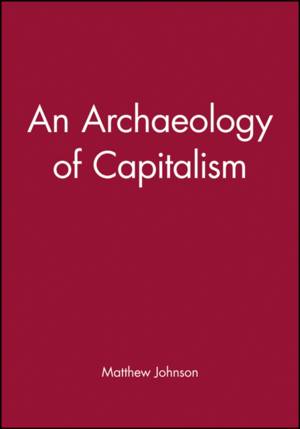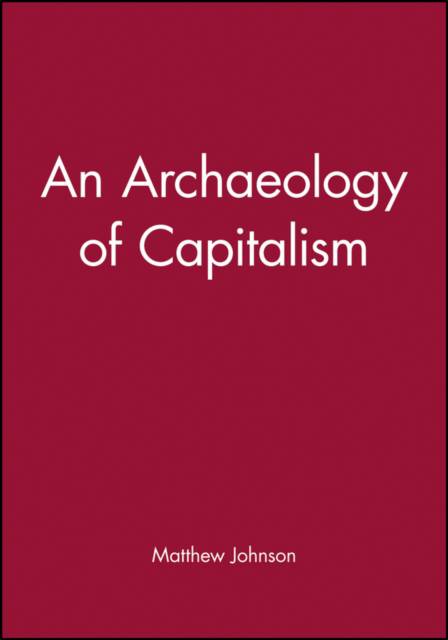
Bedankt voor het vertrouwen het afgelopen jaar! Om jou te bedanken bieden we GRATIS verzending (in België) aan op alles gedurende de hele maand januari.
- Afhalen na 1 uur in een winkel met voorraad
- In januari gratis thuislevering in België
- Ruim aanbod met 7 miljoen producten
Bedankt voor het vertrouwen het afgelopen jaar! Om jou te bedanken bieden we GRATIS verzending (in België) aan op alles gedurende de hele maand januari.
- Afhalen na 1 uur in een winkel met voorraad
- In januari gratis thuislevering in België
- Ruim aanbod met 7 miljoen producten
Zoeken
€ 94,95
+ 189 punten
Omschrijving
An Archaeology of Capitalism offers an account of landscape and material culture from the later Middle Ages to the beginnings of the Industrial Revolution. In tracing some of the roots of modernity back to the transformation of the countryside, this book seeks an innovative understanding of the transition between feudalism and capitalism, and does so through a unique synthesis of archaeology, economic, social and cultural history, historical geography and architectural history.
Medieval and early modern archaeology has in the past focused on small-scale empirical contributions to the study of the period. The approach taken here is both wider-ranging and more ambitious. The author breaks down the dividing lines between archaeological and documentary evidence to provide a vivid reconstruction of pre-industrial material life and of the social and mental processes that came together in the post-medieval period in the transition towards modernity. Matthew Johnson is careful to avoid a simplifying evolutionary explanation, but rather sees the period in terms of a diversity of social and material practices evident in material traces - traces that survive and that, when reused in different contexts, came to mean different things.
Medieval and early modern archaeology has in the past focused on small-scale empirical contributions to the study of the period. The approach taken here is both wider-ranging and more ambitious. The author breaks down the dividing lines between archaeological and documentary evidence to provide a vivid reconstruction of pre-industrial material life and of the social and mental processes that came together in the post-medieval period in the transition towards modernity. Matthew Johnson is careful to avoid a simplifying evolutionary explanation, but rather sees the period in terms of a diversity of social and material practices evident in material traces - traces that survive and that, when reused in different contexts, came to mean different things.
Specificaties
Betrokkenen
- Auteur(s):
- Uitgeverij:
Inhoud
- Aantal bladzijden:
- 260
- Taal:
- Engels
- Reeks:
Eigenschappen
- Productcode (EAN):
- 9781557863485
- Verschijningsdatum:
- 23/01/1996
- Uitvoering:
- Paperback
- Formaat:
- Trade paperback (VS)
- Afmetingen:
- 157 mm x 230 mm
- Gewicht:
- 385 g

Alleen bij Standaard Boekhandel
+ 189 punten op je klantenkaart van Standaard Boekhandel
Beoordelingen
We publiceren alleen reviews die voldoen aan de voorwaarden voor reviews. Bekijk onze voorwaarden voor reviews.









